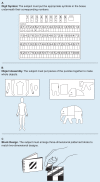Alcohol-Related Cognitive Impairments: An Overview of How Alcoholism May Affect the Workings of the Brain
- PMID: 31798082
- PMCID: PMC6875727
Alcohol-Related Cognitive Impairments: An Overview of How Alcoholism May Affect the Workings of the Brain
Abstract
People with alcoholism express cognitive deficits of varying type and severity. Theoretical models of impaired cognition are intended to explain the deficit patterns by relating them to the brain structures or brain processes that may be damaged. Although no model has thus far succeeded in defining adequately all the impairments alcoholics experience, process-oriented models are proving useful as tools for describing alcohol-related cognitive deficits.
Keywords: AOD abstinence; AOD dependence; AOD impairment; Korsakoff’s syndrome; brain; cognitive process; scientific model.
Figures
References
-
- Blass JP, Gibson GE. Abnormality of a thiamine-requiring enzyme in patients with Wernicke-Korsakoff syndrome. New England Journal of Medicine. 1977;297(25):1367–1370. - PubMed
-
- Bowden SC. Separating cognitive impairment in neurologically asymptomatic alcoholism from Wernicke-Korsakoff syndrome: Is the neuropsychological distinction justified? Psychological Bulletin. 1990;107(3):355–366. - PubMed
-
- Centerwall BS, Criqui MH. Prevention of the Wernicke-Korsakoff syndrome: A cost-benefit analysis. New England Journal of Medicine. 1978;299(6):285–289. - PubMed
-
- Cermak LS. Cognitive-processing deficits in chronic alcohol abusers. Alcohol Health & Research World. 1990;14(2):130–136.
-
- Cermak LS, Butters N, Moreines J. Some analyses of the verbal encoding deficit of alcoholic Korsakoff patients. Brain & Language. 1974;1:141–150.
LinkOut - more resources
Full Text Sources

